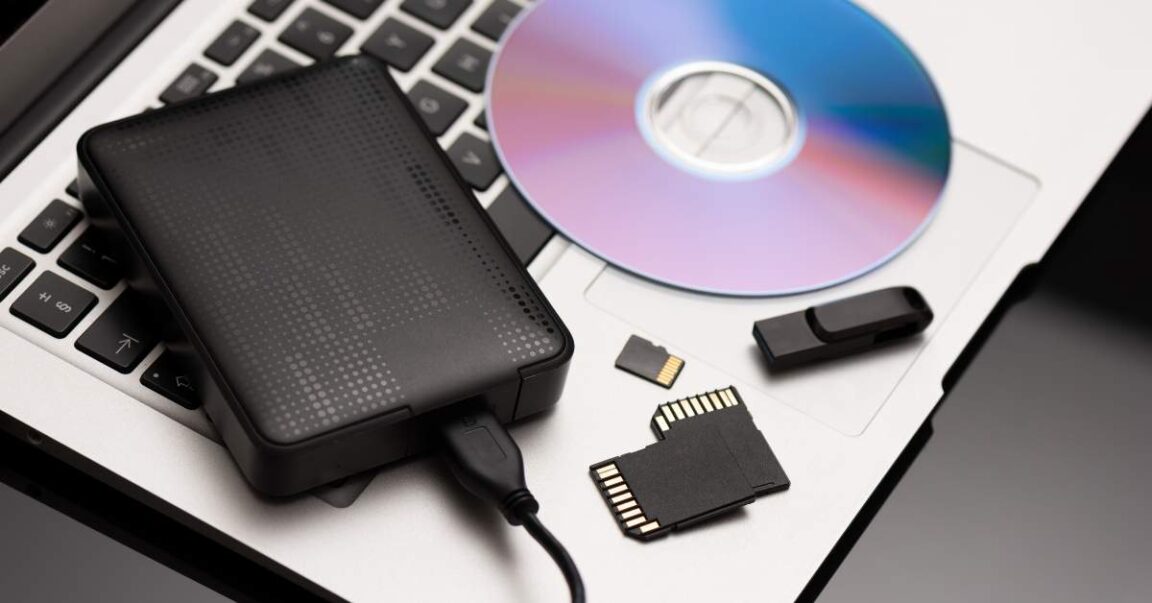In the ever-evolving world of technology, understanding the basics of computer data storage is crucial. The terms ‘MB’ and ‘GB’ often surface in conversations about storage capacity, leaving many puzzled about their differences. This definitive guide aims to demystify the distinctions between megabytes (MB) and gigabytes (GB) while providing an in-depth exploration of related concepts in the year 2024.
Introduction: Unveiling the Mystery of MB and GB
In the realm of computer data storage, MB and GB play pivotal roles. Megabytes, abbreviated as MB, and gigabytes, denoted as GB, are units that quantify the amount of information a storage device can hold. For those navigating the complexities of computer specifications or contemplating a new hard disk purchase, comprehending the distinction between these units is paramount.
The Basics: From Bits to Bytes
Before delving into the world of MB and GB, let’s establish a foundation by revisiting the fundamentals. The smallest unit of data is a bit – a binary digit representing either 0 or 1. Eight bits form a byte, the basic unit of storage. Moving up the hierarchy, a kilobyte (KB) comprises 1024 bytes, setting the stage for our exploration of MB and GB.
Understanding Megabytes (MB): Beyond Kilobytes
A megabyte is a significant leap from a kilobyte, consisting of 1024 kilobytes or 1,048,576 bytes. This unit is commonly used for storing data such as photos, videos, and other sizable files. For perspective, a large photo may consume 3-5 megabytes, while an MP3 song typically equals around 10 megabytes.
Gigabytes (GB): The Next Storage Frontier
As we ascend the storage hierarchy, we encounter gigabytes – units larger than megabytes. A gigabyte comprises 1024 megabytes, equating to approximately 1 billion bytes of information. GB is frequently employed to represent data stored on hard drives or servers, such as extensive backups or lengthy video files. It’s noteworthy that a typical computer hard drive boasts a size of about 500 gigabytes.
TeraBytes (TB), PetaBytes (PB), and Beyond
Beyond gigabytes, the storage landscape expands to terabytes, petabytes, and even further. A terabyte encompasses 1024 gigabytes, while a petabyte transcends into the realm of one quadrillion bytes. These higher units are employed for monumental collections of data, ranging from daily backups over years to extensive multimedia files.
Conversion Table: Navigating Storage Units
Let’s simplify the process of converting between different storage units with the following table:
| Unit | Equivalent to |
|---|---|
| 1 Bit | 1 or 0 |
| 1 Byte | 8 Bits |
| 1 KB | 1024 Bytes |
| 1 MB | 1024 KB |
| 1 GB | 1024 MB or 1,048,576 KB |
| 1 TB | 1024 GB or 1,048,576 MB |
| 1 PB | 1024 TB or 1,048,576 GB |
Frequently Asked Questions: Navigating the Data Storage Maze
Addressing common queries sheds further light on the topic:
How many MB in a GB?
- A gigabyte contains 1024 megabytes, meaning one GB has 1024 times as much memory as one MB.
Is MB bigger than GB?
- No, MB is not bigger than GB. GB is a larger unit, capable of storing more information than a megabyte.
Is GB more than MB?
- Yes, GB is more than MB. A gigabyte can store 1024 megabytes, emphasizing its greater capacity.
How many MB is 1 GB?
- There are 1000 megabytes in a gigabyte, making 1 GB equivalent to 1024 times the memory of 1 MB.
8GB to MB – How to convert?
- Converting 8 gigabytes to megabytes involves multiplying the number of gigabytes by 1024, resulting in 8192 megabytes.
What’s bigger: MB or GB?
- GB is bigger than MB. While a megabyte contains 1024 kilobytes, a gigabyte contains 1024 megabytes, establishing GB as the larger unit.
How much data can a 500 GB hard drive hold?
- A 500 GB hard drive can hold approximately 512,000 megabytes or 500 gigabytes of data.
How many movies can a petabyte hold?
- Since a typical movie is 5-10 gigabytes in size, a petabyte could hold around 1 million movies, considering there are 1024 terabytes in a petabyte.
Why are higher units like TB and PB used?
- Terabytes and petabytes are employed for extensive data storage, including backups spanning years and large collections of multimedia files.
Conclusion: Navigating the Digital Sea of Storage
In the rapidly advancing world of technology, understanding the nuances of data storage units like MB and GB is indispensable. This guide, coupled with a conversion table and an array of frequently asked questions, serves as a beacon, illuminating the path through the intricacies of computer storage capacities. As we navigate the digital sea of storage options in 2024, this knowledge empowers users to make informed decisions about their computing needs.



